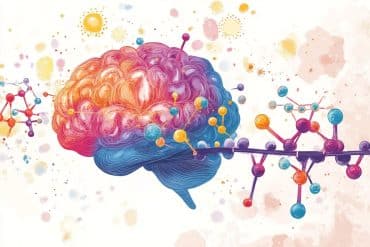Curiosity is a powerful motivator, leading us to make important discoveries and explore the unknown. But new research shows that our curiosity is sometimes so powerful that it leads us to choose potentially painful and unpleasant outcomes that have no apparent benefits, even when we have the ability to avoid these outcomes altogether.
The findings are published in Psychological Science.
“Just as curiosity drove Pandora to open the box despite being warned of its pernicious contents, curiosity can lure humans—like you and me—to seek information with predictably ominous consequences,” explains study author Bowen Ruan of the Wisconsin School of Business at the University of Wisconsin-Madison.
Previous research had shown that curiosity drives people to seek out miserable experiences, including watching horrible scenes and exploring dangerous terrain. Ruan and co-author Christopher Hsee at the University of Chicago Booth School of Business hypothesized that this curiosity stems from humans’ deep-seated desire to resolve uncertainty regardless of the harm it may bring.
To test this hypothesis, the researchers designed a series of experiments that exposed participants to a variety of particularly unpleasant outcomes.
In one study, 54 college student participants came to the lab and were shown electric-shock pens that were supposedly left over from a previous experiment; they were told that they could click the pens to kill time while they waited for the “real” study task to begin.
For some of the participants, the pens were color coded according to whether they would deliver a shock—five pens that would shock had a red sticker and five pens that wouldn’t shock had a green sticker—meaning that the students knew with certainty what would happen when they clicked a given pen.
Other participants, however, saw 10 pens that all bore yellow stickers and were told that some of the pens had batteries while others didn’t. In this case, the outcome of clicking each pen was uncertain.
The results were clear: Students in the uncertain condition clicked noticeably more pens. On average, those who didn’t know what the outcome would be clicked about five pens, while those who knew the outcome clicked about one green pen and two red pens.
A second study, in which students were shown 10 pens of each color, confirmed these results. Once again, students clicked more of the uncertain outcome pens than the pens that were clearly identified.
To find out whether the findings would hold under other conditions and whether resolving curiosity would indeed make participants feel worse, the researchers designed a third study involving exposure to pleasant and unpleasant sounds. Participants saw a computer display of 48 buttons, each of which played a sound when clicked. Buttons labeled “nails” would play a sound of nails on a chalkboard, buttons labeled “water” played a sound of running water, and buttons labeled “?” had an equal chance of playing either sound.
On average, students who saw mostly uncertain buttons clicked about 39 buttons, while those who saw mostly identified buttons clicked only about 28.
Interestingly, the results also showed that participants who clicked more buttons reported feeling worse afterward, and those who faced mostly uncertain outcomes reported being less happy than those who faced mostly certain outcomes.
Additional findings suggest that asking people to predict the consequences of their choices might dampen the power of their curiosity. Participants in an online study were presented with obscured pictures of unpleasant-looking insects—such as centipedes, cockroaches, and silverfish—and they could click on image to reveal the insect.

As in the previous studies, participants faced with uncertain outcomes clicked on more pictures (and felt worse overall); but when they had to predict how they would feel about their choice first, they clicked on relatively fewer pens (and felt happier overall).
Together, the findings from this series of simple experiments make a big point: While curiosity is often seen as a human blessing, it can also be a human curse. Many times, we seek out information to satisfy our curiosity without considering what will happen when we do.
“Curious people do not always perform consequentialist cost-benefit analyses and may be tempted to seek the missing information even when the outcome is expectedly harmful,” Ruan and Hsee write in their paper.
“We hope this research draws attention to the risk of information seeking in our epoch, the epoch of information,” Ruan concludes.
Source: Anna Mikulak – APS
Image Credit: Image is adapted from the APS press release.
Original Research: Abstract for “The Pandora Effect: The Power and Peril of Curiosity” by Christopher K. Hsee and Bowen Ruan in Psychological Science. Published online March 21 2016 doi:10.1177/0956797616631733
Abstract
The Pandora Effect: The Power and Peril of Curiosity
Curiosity—the desire for information—underlies many human activities, from reading celebrity gossip to developing nuclear science. Curiosity is well recognized as a human blessing. Is it also a human curse? Tales about such things as Pandora’s box suggest that it is, but scientific evidence is lacking. In four controlled experiments, we demonstrated that curiosity could lead humans to expose themselves to aversive stimuli (even electric shocks) for no apparent benefits. The research suggests that humans possess an inherent desire, independent of consequentialist considerations, to resolve uncertainty; when facing something uncertain and feeling curious, they will act to resolve the uncertainty even if they expect negative consequences. This research reveals the potential perverse side of curiosity, and is particularly relevant to the current epoch, the epoch of information, and to the scientific community, a community with high curiosity.
“The Pandora Effect: The Power and Peril of Curiosity” by Christopher K. Hsee and Bowen Ruan in Psychological Science. Published online March 21 2016 doi:10.1177/0956797616631733







